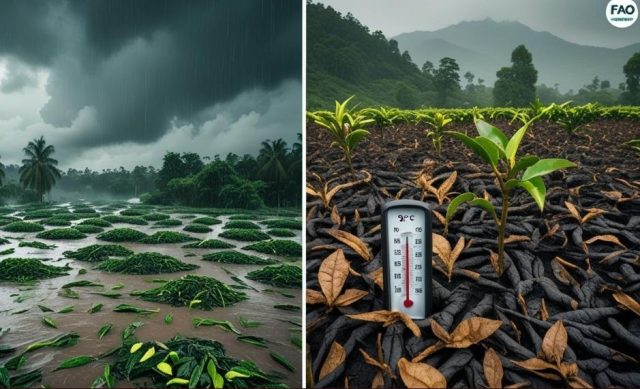businesstoday24 Correspondent, Sylhet: Two of the world’s leading tea-producing countries, India and Turkey, are witnessing a sharp decline in tea production due to the adverse effects of climate change. This crisis has already begun to shrink global supply and push prices upward. Experts warn that unless corrective measures are taken, global tea markets will face significant disruptions in both supply and pricing.
In India’s Assam and Darjeeling regions, drought conditions that began last year have severely impacted yields. In 2024, India’s tea production dropped by 7.8 percent to 1,285 million kilograms. Notably, in June, excessive rainfall flooded over 12,000 hectares of tea gardens in Assam’s Barak Valley. Meanwhile, Darjeeling recorded its lowest production levels in the past 50 years. As a result, raw tea prices have surged by nearly 20 percent.
Turkey is facing a similar crisis. The country, which produced 1.45 million tons of tea in 2019, saw production fall below 500,000 tons in 2023. Prolonged summer heatwaves, with temperatures exceeding 37°C, coupled with unpredictable rainfall, have dried out tea plants in the highlands.
According to the Food and Agriculture Organization (FAO), more than half of the world’s tea-growing areas could be at risk by 2050. Particularly vulnerable regions include India’s northeast, parts of Turkey, Nepal, and sections of China.
Despite the supply crisis, global demand for tea continues to rise. In 2024, the global tea market was valued at approximately 55 billion dollars, with projections suggesting it could reach nearly 59 billion dollars by 2025. However, supply disruptions and price hikes are straining the market.
Premium and specialty teas are seeing increased demand, further driving up prices. For example, the price of matcha tea in Japan has nearly doubled in recent months. Import costs have also surged in countries like Australia and the United Kingdom, causing retail prices to soar.
Experts emphasize that tea-producing countries must urgently invest in drought-resistant plant varieties, modern irrigation systems, and forest conservation. While farmers in India and Turkey have begun adopting some of these measures, experts stress that without significant government support, avoiding a large-scale crisis will be difficult.
Bangladesh is not immune to these risks. Signs of climate stress are gradually appearing in the country’s tea gardens. Immediate, well-planned actions are essential to ensure sustainable tea production for the future.











